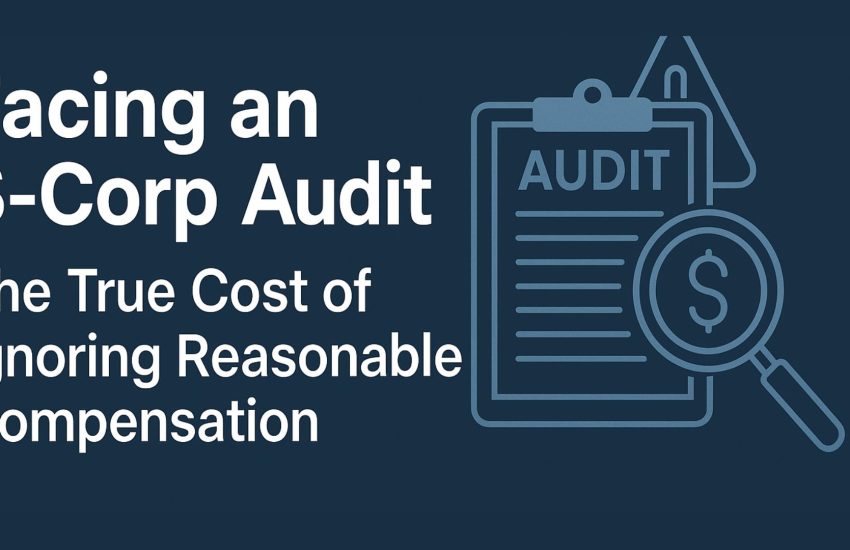Business Owners: Utilize Your Accountant!
Running a business is hard enough without adding the complexity of filing taxes each year. The key is to work with your accountant throughout the year, not just when you prepare your tax return. Making financial decisions without consulting an accountant or financial adviser can put you at risk and cost you more money in the long run.
Here are eight best practices for small business owners when it comes to tax preparation and small business accounting:
- Claim All Income That Is Reported to the IRS
The IRS gets a copy of the 1099-MISC forms you receive so they can match the income you’ve reported against what they know you’ve received. Make sure the income you report to the IRS matches the amount of income reported in the 1099s you received. Not doing so is a red flag for the IRS. Even if a client doesn’t send out a 1099, you still need to report that income. The same rules apply with state taxes.
- Keep Adequate Records
Keeping thorough and accurate records throughout the year will ensure your tax return is correct. With inadequate record keeping, you could be leaving deductions on the table or, worse, you could be putting yourself at risk for an audit. Every business owner should invest in a basic version of an accounting software because it is user friendly, inexpensive, and helps you keep track of all your income and expenses.
- Separate Business from Personal Expenses
If the IRS audits your business and finds personal expenses mixed with business expenses, regardless of whether you reported business expenses correctly, the IRS could start looking at your personal accounts because of commingled money. Always get a separate bank account and credit card for your business and run only business expenses through those accounts.
- Understand the Difference Between Net and Gross Income
If your product costs more money to make than you charge for it, you will lose money regardless of how many units you sell. Small business owners often forget to take into account the difference between their net and gross income.
For instance, if it costs $100 to make your product and you sell it for $150, your gross income is $50. But, after you deduct your expenses, your net income might drop to $10. It’s important to know what your gross and net profits are so you can be more profitable and grow your business.
- Correctly Classify Your Business
Failing to properly classify your business could result in overpaying taxes. Deciding whether to classify your company as either a C Corporation, S Corporation, Limited Liability Partnership, Limited Liability Company, Single Member LLC or Sole Proprietor will have a different effect on your taxes. It’s important that small businesses consult with an accountant to determine how their businesses should be classified.
- Manage Payroll
To save money, some business owners will hire a lesser-known payroll service, only to find out later the service wasn’t remitting payroll taxes for the company. If that happens the business owner is on the hook for the payroll taxes. The IRS typically checks every quarter to see if payroll taxes have been paid.
- Seek Your Accountant’s Advice on Your Business Plan
A good accountant gives you advice on how to grow your business. Seek their advice to determine how much to contribute to your retirement fund and whether you should take a bonus or delay it a year. Your accountant can tell you if buying a small space for your store or business – rather than renting – could save you money.
- Take Advantage of Capitalization Rules
If you acquire a tangible piece of property or equipment for your business, you may be able to take a significant deduction. Make sure your accountant understands the rules around capitalization.
At W. E. Stevens, P.C. we are here to help you! Give us a call at 402-932-8815 and discover how we can help you make the most of your business!
Sincerely,
W. E. Stevens, P.C.
Serving our clients with focused intentionality, professionalism, and timeliness.



